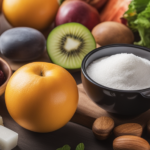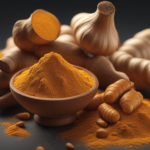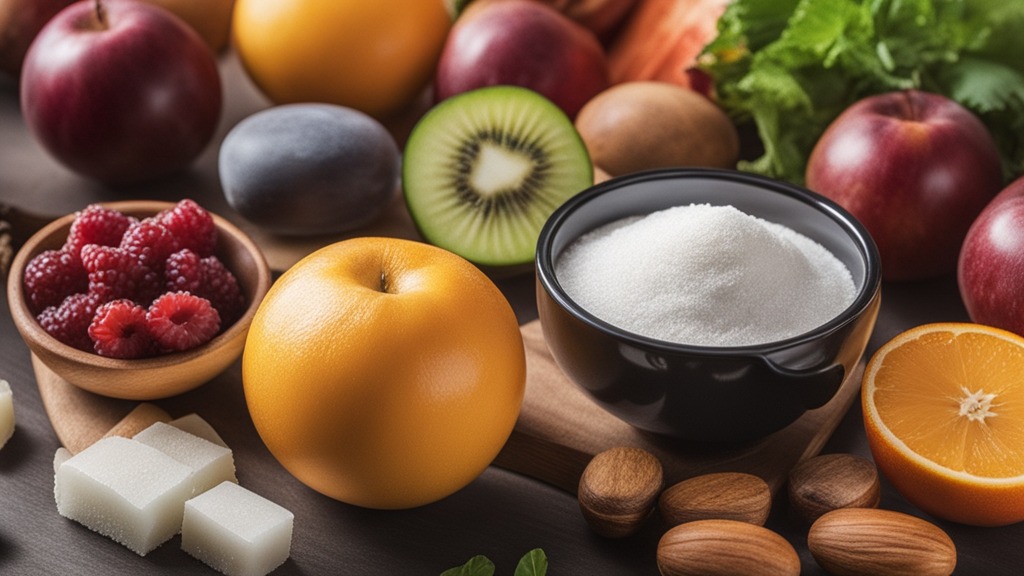Managing blood sugar levels is essential for overall health, especially for those at risk of or living with diabetes. While medication and medical advice are critical, incorporating natural strategies into your lifestyle can offer significant benefits. In this article, we’ll explore a comprehensive range of natural methods to help you manage blood sugar levels effectively.
Outline
- Introduction
- The Importance of Blood Sugar Management
- Understanding Blood Sugar and Insulin
- Dietary Strategies for Blood Sugar Control
- Importance of a Balanced Diet
- Low Glycemic Index Foods
- High-Fiber Diet
- Benefits of Lean Protein
- Healthy Fats for Blood Sugar Balance
- Exercise and Physical Activity
- The Role of Exercise in Blood Sugar Management
- Types of Exercises for Optimal Results
- Incorporating Physical Activity into Daily Routine
- Herbs and Supplements
- Cinnamon and Its Blood Sugar Benefits
- Fenugreek Seeds: A Natural Aid
- The Power of Berberine
- Aloe Vera for Blood Sugar Control
- Stress Management Techniques
- The Link Between Stress and Blood Sugar
- Practicing Mindfulness and Meditation
- The Benefits of Yoga for Stress Relief
- The Importance of Sleep
- How Sleep Affects Blood Sugar Levels
- Tips for Better Sleep Hygiene
- The Role of Melatonin
- Hydration and Blood Sugar Levels
- Why Staying Hydrated is Crucial
- Best Drinks for Blood Sugar Management
- Avoiding Harmful Habits
- Impact of Smoking on Blood Sugar
- Alcohol and Blood Sugar: What You Need to Know
- Monitoring and Tracking
- The Importance of Regular Blood Sugar Monitoring
- Tools and Devices for Effective Tracking
- Keeping a Food and Activity Journal
- Conclusion
- Summarizing Key Takeaways
- The Importance of Consistency in Blood Sugar Management
- FAQs
- How often should I check my blood sugar levels?
- Can I manage blood sugar without medication?
- What is the best diet for blood sugar control?
- How does stress impact blood sugar levels?
- Are natural remedies safe for everyone?
Introduction
The Importance of Blood Sugar Management
Maintaining stable blood sugar levels is a cornerstone of good health. For those with diabetes or prediabetes, it’s even more crucial. However, everyone, regardless of their health status, can benefit from understanding and managing their blood sugar. Unregulated blood sugar can lead to serious health complications, including heart disease, nerve damage, and kidney issues.
Understanding Blood Sugar and Insulin
Blood sugar, or glucose, is the primary source of energy for our cells. Insulin, a hormone produced by the pancreas, helps cells absorb glucose from the bloodstream. When this process is disrupted—whether due to insulin resistance or inadequate insulin production—blood sugar levels can spike, leading to various health problems.
Dietary Strategies for Blood Sugar Control
Importance of a Balanced Diet
A balanced diet is fundamental in managing blood sugar. Incorporating a variety of nutrients ensures that the body functions optimally and that blood sugar levels remain stable.
Low Glycemic Index Foods
Foods with a low glycemic index (GI) are digested and absorbed more slowly, leading to gradual increases in blood sugar. Opt for whole grains, legumes, fruits, and vegetables with low GI to keep your blood sugar in check.
High-Fiber Diet
Fiber, particularly soluble fiber, can slow down the absorption of sugar and improve blood sugar levels. Foods rich in fiber include oats, beans, and whole grains.
Benefits of Lean Protein
Protein doesn’t cause blood sugar spikes, making it an excellent macronutrient for managing blood sugar. Include lean proteins like chicken, turkey, and fish in your diet.
Healthy Fats for Blood Sugar Balance
Incorporating healthy fats such as avocados, nuts, and olive oil can help stabilize blood sugar by slowing down the absorption of carbohydrates.
Exercise and Physical Activity
The Role of Exercise in Blood Sugar Management
Regular physical activity helps muscles absorb glucose, lowering blood sugar levels. Exercise also enhances insulin sensitivity, which means your body needs less insulin to manage blood sugar.
Types of Exercises for Optimal Results
Both aerobic exercises (like walking and swimming) and resistance training (like weightlifting) are effective in controlling blood sugar. Aim for a mix of both for the best results.
Incorporating Physical Activity into Daily Routine
You don’t need a gym to stay active. Simple activities like walking after meals, gardening, or taking the stairs can make a significant difference in your blood sugar management.
Herbs and Supplements
Cinnamon and Its Blood Sugar Benefits
Cinnamon is known for its ability to lower blood sugar levels by mimicking insulin and improving glucose transport into cells.
Fenugreek Seeds: A Natural Aid
Fenugreek seeds contain soluble fiber, which can help control blood sugar levels. They are also believed to improve insulin function.
The Power of Berberine
Berberine, a compound found in several plants, has been shown to lower blood sugar and improve insulin sensitivity.
Aloe Vera for Blood Sugar Control
Aloe vera may help lower blood sugar levels, particularly in people with type 2 diabetes. Its antioxidant properties can also protect the body from oxidative stress.
Stress Management Techniques
The Link Between Stress and Blood Sugar
Stress can cause blood sugar levels to rise due to the release of cortisol, a hormone that increases glucose production. Managing stress is therefore essential for blood sugar control.
Practicing Mindfulness and Meditation
Mindfulness and meditation can help reduce stress levels, which in turn may stabilize blood sugar levels. These practices encourage relaxation and improve emotional well-being.
The Benefits of Yoga for Stress Relief
Yoga combines physical movement, breathing exercises, and meditation, making it an excellent tool for stress reduction and blood sugar management.
The Importance of Sleep
How Sleep Affects Blood Sugar Levels
Poor sleep can negatively affect blood sugar levels by disrupting insulin sensitivity. A lack of sleep can also lead to increased cravings for sugary foods, which can spike blood sugar levels.
Tips for Better Sleep Hygiene
To improve sleep quality, establish a regular sleep schedule, limit caffeine intake, and create a calming bedtime routine.
The Role of Melatonin
Melatonin, a hormone that regulates sleep, may also play a role in blood sugar management. Ensuring adequate melatonin production through good sleep hygiene is vital.
Hydration and Blood Sugar Levels
Why Staying Hydrated is Crucial
Dehydration can lead to higher blood sugar levels as the body tries to conserve water by slowing down glucose removal. Drinking plenty of water helps keep blood sugar levels within a healthy range.
Best Drinks for Blood Sugar Management
Water is the best option, but herbal teas and other low-calorie, sugar-free beverages are also good choices. Avoid sugary drinks that can cause blood sugar spikes.
Avoiding Harmful Habits
Impact of Smoking on Blood Sugar
Smoking can make it harder to manage blood sugar levels. It can lead to insulin resistance, increasing the risk of type 2 diabetes.
Alcohol and Blood Sugar: What You Need to Know
While moderate alcohol consumption may have some benefits, excessive drinking can lead to unstable blood sugar levels. Alcohol can interfere with liver function, affecting blood sugar regulation.
Monitoring and Tracking
The Importance of Regular Blood Sugar Monitoring
Monitoring your blood sugar regularly helps you understand how different foods, activities, and habits affect your levels. This awareness allows for better management and control.
Tools and Devices for Effective Tracking
Modern technology offers various tools like continuous glucose monitors (CGMs) that provide real-time blood sugar readings. These devices can help you stay on top of your blood sugar levels.
Keeping a Food and Activity Journal
Documenting what you eat and your daily activities can provide insights into how different factors impact your blood sugar. This practice can be invaluable for long-term management.
Conclusion
Managing blood sugar levels naturally requires a combination of diet, exercise, stress management, and other lifestyle changes. By incorporating these strategies, you can maintain stable blood sugar levels and improve your overall health. Remember, consistency is key—small, sustained changes can lead to significant improvements.
FAQs
How often should I check my blood sugar levels?
For those with diabetes, checking blood sugar levels multiple times a day may be necessary, especially before and after meals. For others, regular monitoring a few times a week can be sufficient.
Can I manage blood sugar without medication?
While natural strategies can help manage blood sugar, medication may still be necessary, especially for those with diabetes. Always consult with your healthcare provider before making any changes to your treatment plan.
What is the best diet for blood sugar control?
A diet rich in low-GI foods, high fiber, lean protein, and healthy fats is best for managing blood sugar. Avoid processed foods, sugary drinks, and excessive carbohydrates.
How does stress impact blood sugar levels?
Stress can increase blood sugar levels due to the release of cortisol, a hormone that promotes glucose production. Managing stress through mindfulness, exercise, and adequate sleep is essential.
Are natural remedies safe for everyone?
Most natural remedies are safe for most people, but it’s crucial to consult with a healthcare provider before starting any new supplement or herbal remedy, especially if you are pregnant, nursing, or taking other medications. Each person’s body reacts differently, so what works for one person may not work for another.
Johns Hopkins Doctors just uncovered the real cause of High Blood Sugar…

And the simple way to unclog your blood sugar drain. Click image above to Learn More.














